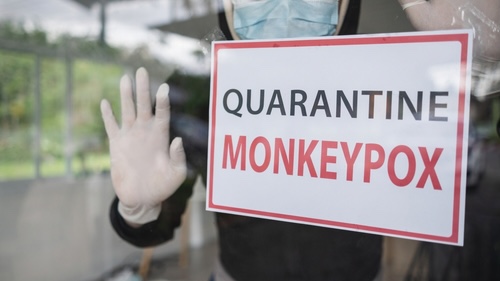Politics
More Problems on Our Hands as Dog Tests Positive For Monkeypox

The Centers for Disease Control and Prevention has updated its monkeypox guidance to reflect that dogs are also at risk of contracting this virus. This update follows a study that reported the first known case of a human-to-dog transmission in France.
The dog is a 4-year-old male Italian greyhound living with two men infected with the virus in France. The dog, which had no prior medical conditions started exhibiting the symptoms of this infection 12 days after the men. It also tested positive after showing signs such as lesions and bumps on its abdomen.
Dr. Rosamund Lewis, technical lead on the monkeypox response for the World Health Organization, said that this has only been a theoretical risk up till now. She said, “On a number of levels, this is new information. It’s not surprising information, and it’s something that we’ve been on the watch out for.“
She noted that within WHO, experts have been working with partners such as the World Organization of Animal Health and the Food and Agriculture Organization to address the issue.
Through DNA testing, researchers concluded that the virus affecting both men and the greyhound was the monkeypox virus after tracing the infection through analysis from one of the men to the one in the dog.
The study reads, “To the best of our knowledge, the kinetics of symptom onset in both patients and, subsequently, in their dog suggest human-to-dog transmission of monkeypox virus.“
Since the men started showing the symptoms, they isolated themselves from other people and pets but had slept with their dog on the same bed. They had also separated the greyhound from other pets or people. The dog’s symptoms of the virus included lesions on the skin and ulceration.
The study also added, “Our findings should prompt debate on the need to isolate pets from monkeypox virus-positive individuals.“
This is the first recorded case of a domesticated animal infected with the virus. So far, the disease control center has identified 10 animals that can be infected with monkeypox. This number includes squirrels, chinchillas, and monkeys.
The Centers for Disease Control and Prevention (CDC) has warned against possible human-to-pet transmission in its monkeypox guidance. It reads, “Infected animals can spread Monkeypox virus to people. It also adds that it is possible that people who are infected can spread the Monkeypox virus to animals through close contact, including petting, cuddling, hugging, kissing, licking, sharing sleeping areas, and sharing food.“
The Center for Disease Control also added that animals infected with the virus could spread it through the same types of contact. The symptoms of the infection in pets are still unknown and may vary depending on the type of animal. However, the guide informed us to watch for “potential signs of illness including lethargy, lack of appetite, coughing, nasal secretions or crust, bloating, fever, and/or pimple- or blister-like skin rash.“
The CDC also added to isolate pets that have had close contact with infected people from other people or pets for at least 21 days.

